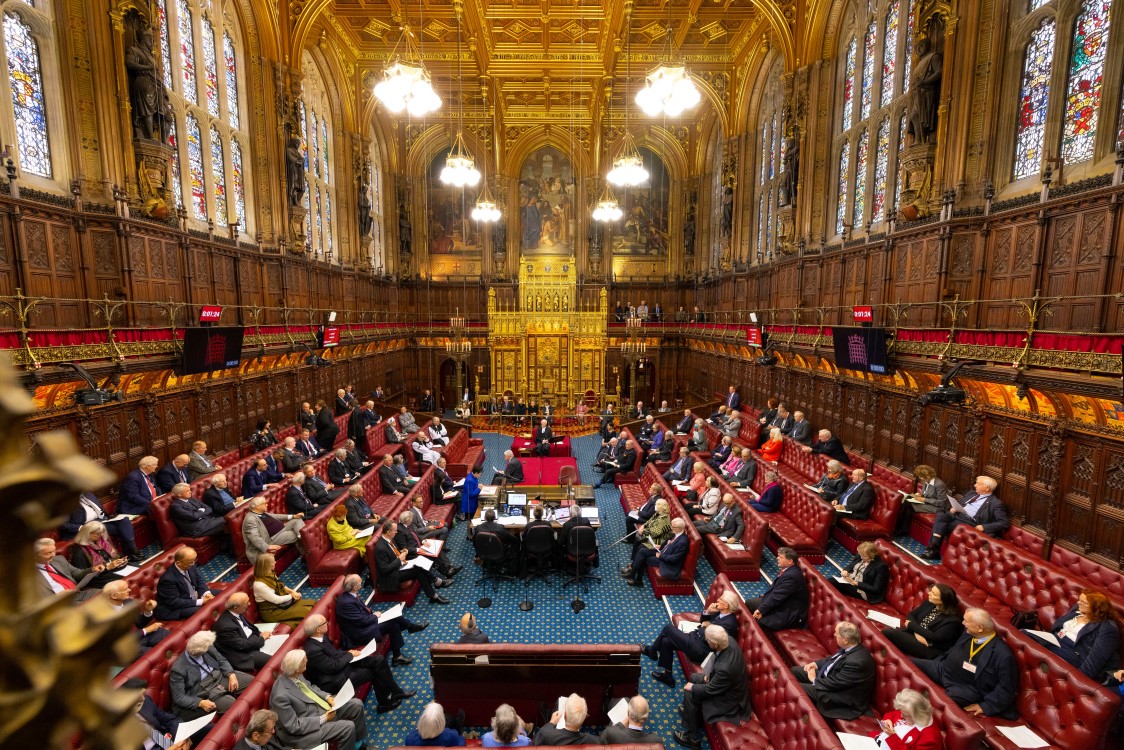
Wetsvoorstel om de crypto-regelgeving in het VK aan te scherpen gaat naar de laatste fase
- Het Britse House of Lords is van mening dat het wetsvoorstel de autoriteiten extra ruimte zal geven om het gebruik van crypto aan te pakken voor misdaden.
- Autoriteiten in Hong Kong verhogen hun toezicht op de crypto-industrie na het JPEX-incident.
- Thailand breidt zijn belastingbeleid uit naar cryptocurrencies.
Als onderdeel van zijn inspanningen om het Britse regelgevingskader voor cryptocurrency te verbeteren, komt het House of Lords dichter bij de definitieve goedkeuring van de Economic Crime and Corporate Transparency Bill. Deze wetgeving, eerst aangekondigd in september 2022 zal de autoriteiten meer bevoegdheden geven om illegale crypto-activiteiten aan te pakken.
De wet, die verschillende stadia van beoordeling en discussie heeft doorlopen, pakt een aantal financiële schendingen aan die verband houden met cryptocurrency. Bovendien beoogt het wetsvoorstel het vermogen van Groot-Brittannië om deze risico's met succes aan te pakken te versterken door het belang van transparantie en verantwoordingsplicht op het gebied van digitale activa te benadrukken.
Tijdens de evaluatiefase van het wetsvoorstel heeft het House of Lord overeenstemming bereikt over specifieke wijzigingen om het doel van het wetsvoorstel te verduidelijken. Deze wijzigingen zijn bedoeld om ervoor te zorgen dat het kerndoel van het beleid het opsporen en bestrijden van het gebruik van crypto voor financiële misdrijven zoals fraude is.
Interessant genoeg heeft de Wet op Economische Misdaad en Bedrijfstransparantie enorme aandacht gekregen van wetgevers in Groot-Brittannië. Het wetsvoorstel heeft de afgelopen maanden zijn weg gevonden van het House of Commons naar het House of Lords.
Het Lagerhuis zal nu beslissen of het de voorgestelde wijzigingen accepteert of meer wijzigingen doorvoert naarmate het wetsvoorstel zijn eindpunt nadert. Deze fase is cruciaal voor de uiteindelijke vaststelling van de maatregel.
Zodra het wetsvoorstel goedkeuring krijgt van het Lagerhuis, zal het in de richting gaan van koninklijke instemming, wat de laatste stap is op weg naar adoptie. Een koninklijke instemming is de formele goedkeuring van de Britse monarch, waardoor een wetsvoorstel een officiële wet wordt. Het proces zorgt ervoor dat de wetgeving aansluit bij het wettelijke kader van het land en consistent is met de doelstellingen van de regering.
Hong Kong versterkt crypto-gericht beleid te midden van JPEX-fraude
Het Verenigd Koninkrijk staat niet alleen in zijn streven naar regelgevende maatregelen om het illegale gebruik van crypto te bestrijden. Landen over de hele wereld ondernemen stappen om de uitdagingen van digitale activa aan te pakken, waarbij Hong Kong en Thailand naar voren komen als opmerkelijke voorbeelden.
Als reactie op de JPEX fraudezaakDe toezichthouders in Hongkong zullen investeerders informeren om alleen platforms te gebruiken die zijn goedgekeurd door de bevoegde autoriteiten. Er zijn ook nieuwe regels om de verantwoordelijkheid binnen de cryptosector te waarborgen en te voorkomen dat situaties zoals JPEX zich opnieuw voordoen.
Thailand implementeert nieuwe belastingregels
In dezelfde geest heeft Thailand stappen ondernomen om persoonlijke inkomsten uit cryptocurrency te belasten. De Aziatische gigant is van plan dit onder meer te doen door ervoor te zorgen dat iedereen die langer dan 180 dagen in Thailand verblijft, aansprakelijk is voor inkomstenbelasting over zijn buitenlandse bezittingen, inclusief cryptocurrency.
Voordat deze wet werd aangenomen, werden alleen buitenlandse inkomsten die naar Thailand werden gestuurd in het jaar waarin ze werden verdiend, belast. Volgens rapporten zal deze wet op 1 januari 2024 vorm krijgen.
Overheden willen er graag voor zorgen dat de belastingwetgeving gelijke tred houdt met het tempo en de populariteit van digitale activa. Lokale bronnen beweren dat Thailand zich heeft gefocust op het implementeren van eerlijke en consistente belastingwetten voor alle inkomstenstromen, en het besluit om cryptocurrencies op te nemen weerspiegelt de erkenning van dit actief.
Ondertussen is er een wereldwijde focus op cryptocurrencies en digitale activa. Hoewel cryptocurrencies opwindende kansen bieden voor innovatie en financiële inclusie, bieden ze ook unieke uitdagingen op regelgevingsgebied voor verschillende landen.
Nu landen als Groot-Brittannië, Hong Kong en Thailand stappen ondernemen om de crypto-ruimte te reguleren, bestaat er geen twijfel over dat de industrie een transformatieve fase doormaakt. Deze veranderingen zijn gericht op het bieden van de broodnodige veiligheid voor het publiek.







